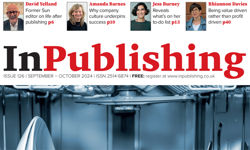The Independent Press Standards Organisation is embarking on an ambitious low-cost pilot arbitration scheme for newspapers and magazines, even though the IPSO chairman Sir Alan Moses is unconvinced so far that such systems will work or can be funded.
The Daily Telegraph, the Daily Mirror and their Sunday stable-mates, the Press Association, the Liverpool Echo and Condé Nast UK magazines such as Tatler, Vogue and House & Garden have all signed up for the specially designed one-year pilot scheme.
By doing so, they will accept binding arbitration on claims against them for everything from libel and breach of confidence to malicious falsehood, harassment and data protection.
It is likely to be the largest of its kind in the UK and flows out of a recommendation in the Leveson report that there is a need for inexpensive arbitration as an alternative to formal litigation.
The pilot scheme will be administered by the CEDR Commission, the largest conflict management and resolution consultancy in the world.
Sir Alan says he has a completely open mind on whether arbitration for the press will work or not, “and I cannot foresee with any confidence one way or the other but it seems absolutely essential to try it.”
Arbitration was recommended by Lord Justice Leveson at a time when it was believed that conditional fee agreements (CFAs) which give people “free” access to law might be abolished – something that did not happen.
“I think the newspapers fear that there is a double blow – a combination of CFAs and arbitration which was never envisaged. Let’s see how many people are prepared to do it. I can think of other cheap ways of vindicating legal rights and obtaining financial redress other than arbitration,” explains Sir Alan, speaking in his modest office in London’s Farringdon Street.
“I don’t see why we shouldn’t have some sort of ombudsman system,” adds the IPSO chairman who will soon have been two years in charge of the independent regulatory body backed by most of the national and local press – the Guardian and the Financial Times are the main exceptions.
EU referendum: increased workload
While arbitration may or may not work – if you can find someone to fund it in the long term - the retired judge takes a much firmer line on the role of politicians and national newspapers in the EU referendum debate.
IPSO has received long letters from politicians complaining about press coverage of the campaign.
“A bit rich I found. One thing that has shone through this dispiriting debate about the EU is the inaccuracies from both sides, daily corrected by the BBC,” says the urbane and animated Sir Alan whose mop of white hair is in the Einstein class.
Overall, he says, people were crying out for modulated, nuanced arguments and not getting them.
“They haven’t got that either from politicians or the newspapers. Of course, there are exceptions; it’s very dangerous to generalise, every day you can find sensible articles in every newspaper but on the whole, people buy newspapers that confirm their prejudices,” Sir Alan notes.
IPSO is in the middle of consideration of complaints of EU inaccuracies from InFacts, a pro-Remain organisation set up by former Financial Times journalist Hugo Dixon to challenge what they saw as obvious untruths in the newspapers.
Sir Alan, speaking on the eve of the Brexit vote, said that IPSO was in the middle of consideration of a number of those complaints although some had been settled.
On the day of the vote, the Daily Express corrected one of the InFacts complaints, a story about the “soaring cost of teaching migrant children: £3 billion bill.” They were actually children who had at least one non-British born EU parent – which would have included Nigel Farage’s children.
One of IPSO’s most high profile adjudications was its finding against The Sun that a ‘Queen Backs Brexit’ headline was “seriously misleading.” Afterwards, Sun editor Tony Gallagher went on the Today programme to defend the headline and refused to accept any error had been made.
IPSO was not impressed with “the interesting defence” that the headline had just been a joke and Sir Alan is unconcerned at what has been seen as the Sun “sticking up two fingers” to the regulator, as long as they ran the finding in the required manner.
“The Sun and its editor were just like any other disappointed litigant – they come out of court saying there is no such thing as justice. What it really means is that we riled them and they didn’t like it. To quote Corporal Jones, they didn’t like it up ’em, and they don’t,” says Sir Alan who wears his pinstriped suit in the office with trainers for comfort. A pair of formal black shoes is placed neatly in a corner.
While the verdict on the Queen may have been interesting, Sir Alan believes the finding against The Sun for reporting a poll as saying that “one in five British Muslims had sympathy for Isis”, which attracted more than 3,000 complaints, was more significant.
IPSO said the story was “significantly misleading” because it had conflated important distinctions between those travelling to Syria, and those already fighting in Syria and between “sympathy” for those individuals and support for their actions.
The IPSO chairman is particularly exercised “by the whole question of discrimination and racial prejudice” though it is often difficult to do anything about it because the present code requires discrimination against an individual and not against a group.
Why he took the job
Sir Alan took on the IPSO task after being approached, because he was intrigued by the issues “in the midst of a great storm about what should or should not happen,” and indeed to ensure that something did happen as a result of Leveson.
“I did have a conviction that I would rather that I was doing it than a whole lot of other people,” says the former judge who happily admits he is “a show-off” and is almost certainly the most left-wing person in the 22-strong IPSO office.
Appropriately, as IPSO chairman, he moves to correct an historic newspaper inaccuracy about himself.
On appointment, he was widely reported to have once thrown in disgust a bunch of newspapers across his courtroom.
“It’s a very good story but I did not,” insists Sir Alan who explains that there is a very narrow bench in the number 1 court in the Old Bailey and he had a large number of newspapers to deal with in evidence. To make room, he dropped them one at a time.
“Perhaps I should have placed them more gently on the floor,” he concedes.
One thing that really irritates the good judge is the notion that IPSO is little different from its predecessor, the PCC.
“The contract, the agreement that leads to enforceable powers in a court of law is a fundamental difference - the obligations that the newspapers have taken on are crucially different from any form of complaint handling that happened before,” Sir Alan says. Apart from responding to complaints within 28 days, newspapers also have to make annual reports setting out how they have handled controversial issues of regulation.
He also managed, eventually, to get an acceptable four-year funding deal for IPSO and “enhanced powers” through rule changes.
The changes included the ability to examine issues even though a formal complaint has not been received, and greater powers to impose fines of up to £1 million though no fines have been imposed so far.
Sir Alan acknowledges that he has to get out and about more making the IPSO case – but felt constrained until recently by the previous lack of agreement on rules and absence of an adequate budget.
Hacked off with Hacked Off
One group the IPSO chairman will not be talking more to in future are campaigners Hacked Off.
“I find the incessant and tiresome reiteration and pretence of what we do by inaccurate description (from Hacked Off) pretty boring,” says the IPSO chairman.
“What I find so piquant is that they use exactly the same methods that they condemn in the newspapers - the half-truth, the slur,” he adds.
But the waspish former high court judge promises that he will try to restrain himself from mocking his would be rival regulator Impress, which has eighteen small publications on its books ranging from A Little Bit of Stone to Your Thurrock.
“I am not prepared to say publicly anything that’s either rude or patronising or even teasing about what they do. I have been guilty of it in the past and I deeply regret it and I have been admonished. Am I going to stop doing it? I am going to try and stop doing it,” says Sir Alan with a smile.
The former judge who likes singing and hill walking has many more serious windmills to tilt at but acknowledges that not all might be accessible to regulation or gain newspaper acceptance.
He is worried about contempt such as what has been written about the man charged with the murder of Jo Cox MP.
“The point I like making about contempt is that what is written is no less offensive if it turns out that the person is guilty,” Judge Moses argues.
He also finds the whole question of anonymity and criminal process extremely difficult, citing the case of Sir Cliff Richard, while recognising that what makes a story is the original accusation.
“I think that the press would hate the notion of anonymity until someone has been charged. Along with phone hacking and Leveson, the Christopher Jefferies story makes your hair stand on end,” he says.
Overall, Sir Alan wants to push ahead with even more effective regulation, as quickly as possible and as strong as possible, providing greater deterrence in the fields of intrusion and privacy.
“We have got across a really important message, an aspect of free speech, the banner that is waved in favour of our press and media, but integral to it is the freedom to have private communication and the freedom to enter into private relationships,” insists Sir Alan Moses, chairman of IPSO.












